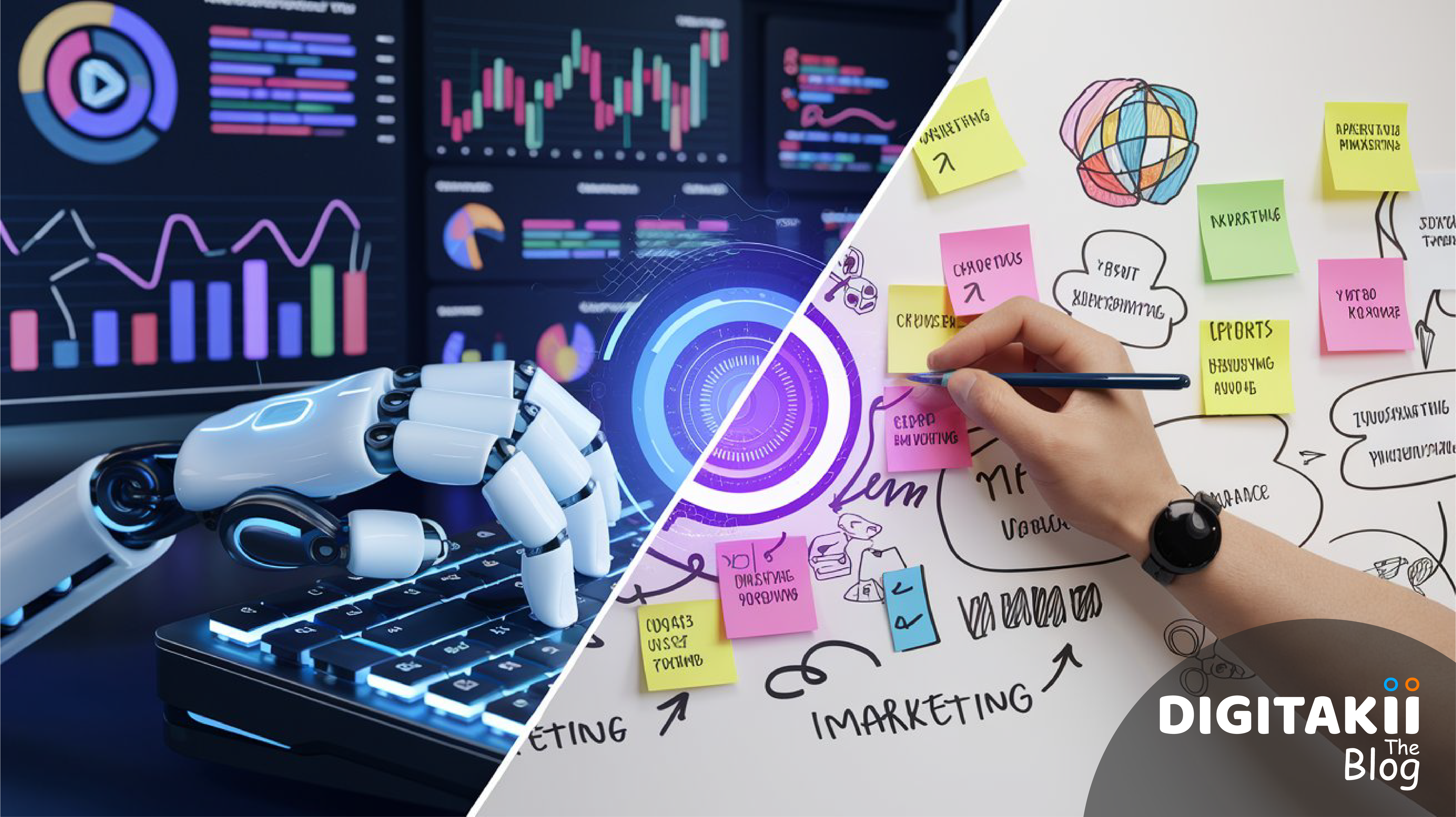Keyword research has long been the backbone of any successful digital marketing strategy. It involves identifying the terms and phrases that potential customers use to search for products, services, or information online. But as the digital landscape evolves, so do the tools and methods marketers use to gain insights into user behavior. Enter AI-driven keyword research a revolutionary approach that is transforming the way marketers understand, target, and engage their audiences.
What is AI-Driven Keyword Research?
AI-driven keyword research leverages artificial intelligence and machine learning to analyze vast amounts of data, identify patterns, and predict trends in search behavior. Unlike traditional methods that rely on manual input and basic automation, AI-powered tools use advanced algorithms and natural language processing (NLP) to provide deeper insights into user intent and search trends. This enables marketers to uncover high-value keywords more accurately and efficiently than ever before.
The Evolution of Keyword Research Tools
Keyword research has come a long way from the early days of digital marketing. Initially, marketers would manually compile lists of potential keywords, often guessing which terms might yield the best results. Then came the rise of automated tools like Google’s Keyword Planner, which made the process faster and more data-driven. Today, AI is pushing the boundaries even further, allowing for more nuanced and sophisticated keyword research that factors in context, intent, and user behavior.
How AI Enhances Keyword Research
AI enhances keyword research in several key ways:
- Natural Language Processing (NLP): AI can understand the context behind search queries, enabling marketers to focus on keywords that match the user’s intent rather than just the literal query.
- Machine Learning Algorithms: These algorithms learn from data over time, identifying patterns and trends that human researchers might miss.
- Large-Scale Data Processing: AI can analyze massive datasets quickly, providing insights into long-tail keywords, seasonal trends, and emerging topics that might take humans weeks or months to identify.
Benefits of AI-Driven Keyword Research for Marketers
- Improved Accuracy and Relevance: AI tools can predict user intent with high precision, leading to more targeted keyword strategies.
- Time and Cost Efficiency: Automation reduces the time and resources needed for keyword research, allowing marketers to focus on strategy rather than data collection.
- Enhanced Ability to Target Niche Markets: By processing large datasets, AI can help marketers identify niche keywords that may have been overlooked by traditional methods.
AI Tools Transforming Keyword Research
Several AI-driven tools are revolutionizing keyword research, each offering unique features that cater to different marketing needs:
- SEMrush: Uses AI to provide in-depth keyword analysis and competitive insights.
- Ahrefs: Known for its powerful backlink analysis, Ahrefs also offers AI-driven keyword suggestions.
- Clearscope: Uses NLP to suggest semantically related keywords that improve content relevance.
How to Implement AI-Driven Keyword Research in Your Strategy
Integrating AI tools into your marketing strategy can be straightforward if approached systematically:
- Choose the Right Tools: Identify the AI-driven keyword research tools that align with your marketing goals.
- Analyze Competitor Keywords: Use AI to gain insights into your competitors’ keyword strategies.
- Optimize Content Accordingly: Leverage AI-generated keyword lists to create content that resonates with your target audience.
AI-Driven Keyword Clustering
Keyword clustering involves grouping related keywords to improve content relevance and SEO strategy. AI can automate this process by analyzing semantic relationships between keywords and suggesting clusters that align with user intent and search trends.
Understanding Search Intent with AI
Understanding search intent is crucial for any SEO strategy, as it ensures content aligns with what users are actually looking for. AI helps identify search intent more accurately by analyzing user behavior patterns, query context, and historical data.
Real-Time Data Analysis and Adaptation
One of the standout advantages of AI in keyword research is its ability to provide real-time data analysis. This allows marketers to adapt quickly to changing search engine algorithms and emerging trends, keeping their content strategies agile and competitive.
AI-Generated Content and Keyword Relevance
AI isn’t just for keyword research; it can also assist in content creation. By analyzing keyword data, AI can suggest relevant topics, headlines, and content structures, ensuring that the final content is optimized without falling into the trap of keyword stuffing.
Challenges and Limitations of AI-Driven Keyword Research
While AI offers numerous advantages, it isn’t without its limitations:
- Over-reliance on AI: Depending too heavily on AI can lead to a lack of creativity and human touch in content.
- Potential Biases in Algorithms: AI can only be as unbiased as the data it is trained on, which can sometimes lead to skewed results.
Future Trends in AI and Keyword Research
The future of AI in keyword research looks promising, with advancements in deep learning, predictive analytics, and voice search optimization on the horizon. These emerging technologies will likely make AI-driven tools even more powerful and essential for marketers.
Case Studies: Success Stories of AI-Driven Keyword Research
Several companies have already seen success using AI-driven keyword research tools. For example, an e-commerce brand used AI to identify underutilized long-tail keywords, leading to a 40% increase in organic traffic within six months. These case studies underscore the potential of AI to revolutionize keyword strategies.
Conclusion
AI-driven keyword research is undeniably a game-changer for marketers, offering unparalleled accuracy, efficiency, and insights. As AI technology continues to evolve, so too will the capabilities and applications of AI in keyword research, making it an indispensable tool for any modern marketer.
FAQs
- What is the difference between traditional and AI-driven keyword research?
Traditional keyword research relies on manual input and basic automation, while AI-driven research uses advanced algorithms and machine learning for deeper insights. - How accurate is AI in predicting keyword trends?
AI can predict keyword trends with high accuracy by analyzing large datasets and identifying patterns, although it isn’t infallible and should be used alongside human expertise. - Are there any free AI-driven keyword research tools available?
Some tools offer free versions with limited features, but comprehensive AI-driven keyword research tools typically require a subscription. - Can AI replace human input in keyword research entirely?
No, AI is a powerful tool, but human insight is still necessary for creativity, strategy, and interpreting nuanced data. - How can small businesses benefit from AI-driven keyword research?
Small businesses can leverage AI to compete with larger competitors by identifying niche keywords and optimizing their content more effectively.
===============================
Ready to dominate the digital world? 🚀💻
Don’t just exist online – THRIVE! At www.digitakii.com, we’re your secret weapon for digital success.
🌐 Stunning websites that convert 📱 Social media that sizzles 🔍 SEO that skyrockets your visibility 📊 Data-driven strategies for real results
Why blend in when you can stand out? Let’s craft your digital masterpiece together!
👉 Visit www.digitakii.com now and let’s make some digital magic! ✨
#DigitalMarketing #DigitalPresence #DigitalMarketingAgency
===============================



